Potřebujeme váš souhlas k využití jednotlivých dat, aby se vám mimo jiné mohly ukazovat informace týkající se vašich zájmů. Souhlas udělíte kliknutím na tlačítko „OK“.
ASTM D4568-13
Standard Test Methods for Evaluating Compatibility Between Cable Filling and Flooding Compounds And Polyolefin Wire and Cable Materials
Automaticky přeložený název:
Standardní zkušební metody pro hodnocení kompatibilita mezi kabelové Plnicí a záplav sloučenin a Polyolefin vodičů a kabelů materiálů
NORMA vydána dne 1.11.2013
Informace o normě:
Označení normy: ASTM D4568-13
Poznámka: NEPLATNÁ
Datum vydání normy: 1.11.2013
Kód zboží: NS-27733
Počet stran: 5
Přibližná hmotnost: 15 g (0.03 liber)
Země: Americká technická norma
Kategorie: Technické normy ASTM
Kategorie - podobné normy:
Anotace textu normy ASTM D4568-13 :
Keywords:
compatibility, filling compound, flooding compound, polyolefin coated metals, polyolefin insulation, polyolefin jacket, ICS Number Code 29.035.20 (Plastic and rubber insulating materials)
Doplňující informace
| Significance and Use | ||||||||||||||
|
4.1 Cable filling and flooding compounds are normally semi-solid at room temperature and fluid in varying degrees at elevated temperatures. They are normally applied in a liquid state and at an elevated temperature during wire and cable manufacturing. The completed finished wire or cable is exposed to various ambient conditions during its useful life. If not carefully selected, components of filling or flooding compounds have the potential to degrade the materials they contact, short term or long term. The following methods are intended to minimize the chances of such problems occurring. 4.2 Some of the effects that might occur include, but are not limited to: 4.2.1 Delamination of coated metal shields or screens in completed wire and cable. Delamination is primarily a function of the test temperature and the type of laminant used, so test results are unlikely to vary significantly between filling or flooding compounds of a common family (for example, petroleum based filling or flooding compounds). 4.2.2 Degradation of physical properties of insulation, jackets, core coverings, etc. Likely manifestations of degradation of plastic material include embrittlement of some materials and excessive softening of other materials. 4.3 Since the magnitude of any given effect will vary, some test procedures will be more critical than others. It is not, therefore, intended that every listed procedure be performed with every compatibility study. Perform procedures to the extent required by product specifications or as agreed upon between the producer and the purchaser. |
||||||||||||||
| 1. Scope | ||||||||||||||
|
1.1 These test methods evaluate the compatibility between cable filling or cable flooding compounds, or both, and polyolefin materials used in the manufacture of wire and cable that are usually in intimate contact with the filler or floodant, or both. 1.2 These test methods are useful to ensure compatibility and to verify that new formulations of filling or flooding compounds will have no deleterious effect upon the other polyolefin materials being used or, conversely, use these methods to ensure that other polyolefin wire and cable materials are evaluated for possible use not degraded by contact with fillers or floodants already in use. 1.3 Whenever two sets of values are presented, in different units, the values in the first set are the standard, while those in parentheses are for information only. 1.4 This standard does not purport to address all of the safety concerns, if any, associated with its use. It is the responsibility of the user of this standard to establish appropriate safety and health practices and determine the applicability of regulatory limitations prior to use. |
||||||||||||||
| 2. Referenced Documents | ||||||||||||||
|
Podobné normy:
Historická
1.10.2012
Historická
1.10.2010
Historická
1.4.2014
Historická
1.3.2014
Historická
1.8.2011
Historická
1.10.2010
Doporučujeme:
Aktualizace technických norem
Chcete mít jistotu, že používáte pouze platné technické normy?
Nabízíme Vám řešení, které Vám zajistí měsíční přehled o aktuálnosti norem, které používáte.
Chcete vědět více informací? Podívejte se na tuto stránku.


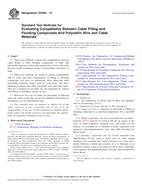
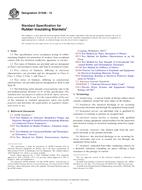 ASTM D1048-12
ASTM D1048-12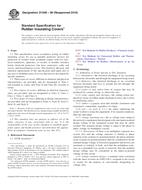 ASTM D1049-98(2010)..
ASTM D1049-98(2010)..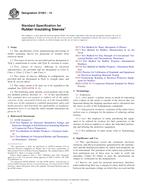 ASTM D1051-14
ASTM D1051-14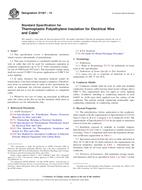 ASTM D1351-14
ASTM D1351-14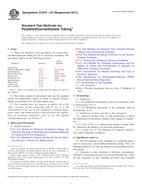 ASTM D1675-03(2011)..
ASTM D1675-03(2011)..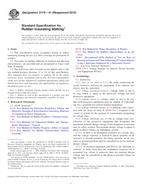 ASTM D178-01(2010)..
ASTM D178-01(2010)..
 Cookies
Cookies
